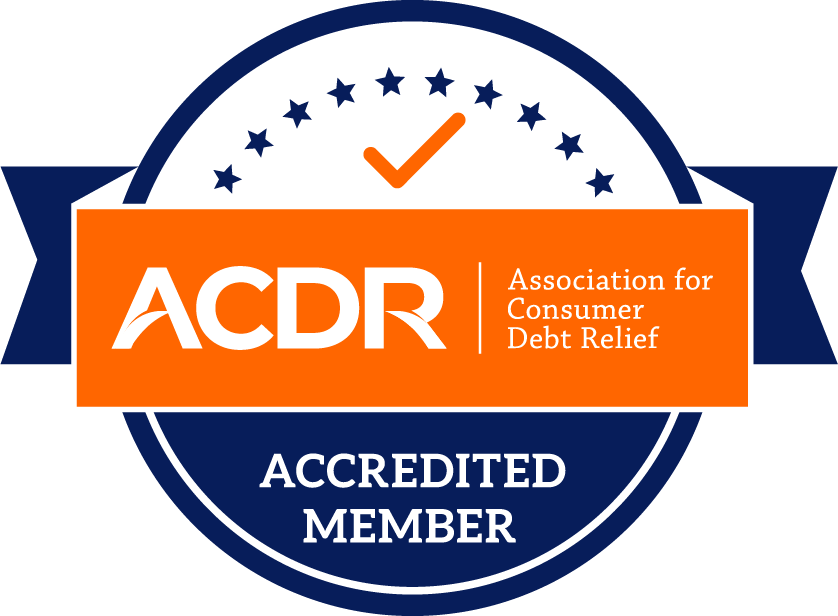
Adding It Up: How Does My Debt Compare to Other Americans?
Why American Debt Relief Is Important
When dealing with debt, it can be easy to assume that you are the only person struggling. Millions of Americans today are struggling to make the required monthly payments. As the cost of living continues to increase, it is becoming more difficult to manage spending. Regardless of your financial situation, know that you are not alone in trying to relieve your debt. How, though, do you compare to other Americans when it comes to debt?
The Average Amount of American Debt

In 2018, the average debt for Americans aged 35 to 54 was roughly $134,000, according to Time Magazine. Time also reported that the overall debt for Americans aged 55 to 64 is roughly $108,300, while the amount for those aged 65 to 74 is $66,000.
These numbers show that, while debt continues to decline with age, it is still a huge issue that many Americans are facing, even in retirement. The retirement age in the United States is 65 years old, which means that even some of these individuals struggle financially. This trend does not have to continue. It is possible to experience debt relief and work towards achieving financial freedom before you reach retirement.
Additionally, a 2018 article from the Consumer News and Business Channel (CNBC) showed that debts, including credit cards, personal loans, auto loans, and student loans, are costing the average American 10% of their monthly income. Interestingly, however, the report from which CNBC is pulling its information also states that credit card debt in America has decreased by $8.1 billion. What this seems to mean is that more Americans are cutting up their credit cards and starting to make more aggressive payments on them.
Debt Solutions
In order to tackle this national debt issue, it is important to explore the various options available. At Liberty Debt Relief, we can speak to you about a range of solutions to meet your unique financial needs and goals. Here is a list of the top American debt relief options available today:
- Debt Consolidation: This is the process of combining all of your unsecured debt into one single loan payment. Unsecured debt has no specific asset or property, like a house or car, that acts as collateral. Because it can be hard to manage medical bills, car payments, and credit card debt all at the same time, this approach is great if you are struggling to keep track of multiple debt obligations every month. Consolidating your debt could also help you to get a lower interest rate on your debt. This means that, over time, you will end up paying less for your overall debt because you will have a lower interest rate. This approach can help your credit score if you are able to keep up with the monthly payments. However, if you are not able to keep up with your payments, your credit score will suffer.
- Debt Settlement: Debt settlement is a common American debt relief option that involves working with your creditors and coming to a debt settlement amount that is lower than your outstanding loan balance. While these negotiations are taking place, you are not making payments on your debt and instead saving your monthly payments to ultimately make a lump sum payment. Just keep in mind, your creditors are not required to come to an agreement and forgive part of your debt. If, however, you work with Liberty Debt Relief, we work with your creditors on your behalf, and we can use our experiences of working relationships to add leverage to your requested terms.

- Budgeting: Budgeting is often overlooked as a debt relief strategy, but it can be a great option if you do not currently keep track of your finances. Having a comprehensive budget that lays out exactly what you make in income every month and details all of your relevant expenses and debt payments can be incredibly useful in helping you come up with a debt relief solution. For example, if you create a budget for yourself and realize that you are spending over $50 a month on coffee, then that is money that could be redirected towards paying off your debt. Scheduling a free consultation with a Liberty Debt Relief expert will help you to determine which approach to debt relief is best for you.
- Bankruptcy: Bankruptcy is considered the last resort, though it can give you a fresh start financially. You will no longer have to deal with debt collectors or overwhelming amounts of debt. This approach will, however, essentially ruin your credit and could cost you your assets, such as your home or car. Over time, you will also be able to rebuild your credit score, but filing for bankruptcy will stay on your credit report for at least seven years, depending on the type of bankruptcy.
How to Get Help With Debt
In order to truly experience debt relief and ultimately become debt free, it is important to have a debt relief strategy that works for you and is a true reflection of your financial goals. Liberty Debt Relief has a wide variety of American debt relief options and strategies to help you create the best approach to manage your debt. You do not have to tackle your debt alone. Millions of Americans today work with debt relief organizations in order to experience relief. Having a free consultation with one of our debt relief experts will give you the opportunity to ask important questions about your debt and learn what options you qualify for with your current debt.
Call Liberty Debt Relief today to schedule your free consultation and learn more about managing your debt!







